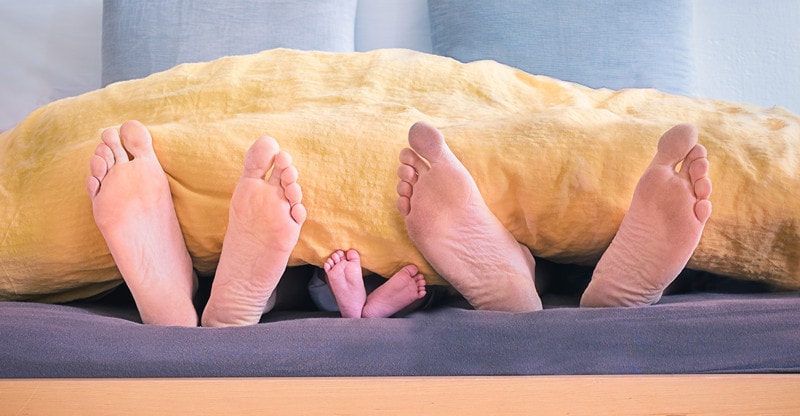Factors That Can Affect Your Sleep Without You Knowing
Sleep usually denotes the end of our day. A time when we rest and let our body relax and our consciousness suspended. A good night’s sleep is essential to maintain a healthy physical body and emotional state.
However, most people do not recognise that the quality and quantity of sleep is necessary. In fact, CDC mentions that 35 % of adults get less than the required seven hours of sleep per day.
The more we don’t get enough sleep, the more our body fails to recognise that we are sleep deprived. The effects of sleep deprivation lead to irritability, fatigue and fuzzy-headedness. And as our sleep debt grows, so is the risk of health conditions like diabetes, heart disease, stroke, weight gain and memory loss.
Thus, we must get enough sleep, that is, seven to nine hours for those from age 18 to 64 and seven to eight hours older than 64 years. Meanwhile, kids are expected to have 10 to 13 hours of rest per day.
Nevertheless, various reasons can affect the quality and duration of one’s sleep. Apparent reasons may include the increasing number of work hours and the availability of entertainment medium while there are some elements affecting our sleep that we don’t even notice.
Here are some of these factors:
Sleep Environment
Where you rest is a vital factor in getting quality sleep. Its ambience must make you feel safe, peaceful and relaxed. The colours of your room and the furniture you have are essential. Blue is the most common shade for a bedroom as it is calm and soothing.
The colour green is also used since it is a natural colour, although the shades of neon and lime green are not included. Yellow is another safe bet for its soothing effects as it stimulates the nervous system and encourages one to relax.
Another critical factor in your sleep environment is the items in your room, such as the mattress, pillows, blanket and sheets, to name a few. Experts at Night Nod provide helpful lists of sleep elements that can help ensure quality sleep. Practicing good sleep hygiene in a holistic way is essential to develop a consistent schedule.
Light
Light is an external element that affects not only the sleep we get but our internal clock too. The brightness of the room affects the ease of a person falling asleep. Light also influences the cells in our eyes that tells our brain when it’s night or daytime.
With the exposure to bright lights in the evening, our eyes and brains no longer differentiate nighttime positively which delays sleep timing. Thus, it is advised to limit exposure to bright lights before going to sleep and to dim light in the bedroom.
Major Change in Activities
Another factor is the sudden shift in activities such as travelling to another time zone or changes in a work shift. When going to different time zones or working on a night shift, the body needs to adjust to the new schedule as opposed to its internal biological clock. People who experience this have symptoms of insomnia and excessive sleepiness.
Medications and Substances
Substances that you take also affect sleep. Caffeine, drugs, alcohol, nicotine, and other medications have varying effects on the body’s ability to get some rest. Caffeine and nicotine are stimulants that lead to sleep disruption.
Although coffee may have an initial calming effect to some, it may increase the number of awakenings. Caffeine is also present in soda, tea, and chocolates. Thus, the intake of such provisions should be limited before sleeping.
Alcohol, on the other hand, is used by some as an aid for sleeping. However, the quality of sleep is also affected as awakenings are increased, and the development of insomnia is imminent. It also relaxes the upper airway muscles, which can worsen snoring and sleep apnea.
Anxiety and Pain
Body aches and pain causes discomfort, which leads to shorter sleep or difficulty sleeping. Because of the physical discomfort, the body could not rest appropriately or is awakened because of the unpleasant sensation. The effects of stress also make our body remain alert and awake since it triggers hormones such as adrenaline, cortisol and ACTH.
Negative emotions, such as anger also affects the release of adrenaline into the body. Although you may calm down after an intense feeling, the amount of adrenaline released into the body will influence sleep.
Exercise
One element that can be good for sleep is exercise, that is if employed correctly. Exercise can aid in the release of growth hormones, brain growth and in enhancing deep sleep. However, there are factors in an activity that can negatively impact rest. The intensity, type, duration and time of doing the exercise has an impact on sleep.
Early evening exercises, as long as kept at low intensity will do wonders to your sleep. On the other hand, competitive and high adrenaline activities could cause disruption and reduce the quality of sleep.
Diet
The type of diet or the components of the food we take may also affect sleep. The time of taking the meal is also a factor that should be considered. Although there are several factors to acknowledge, such as the medical condition of the person and the person’s ability to metabolise meals.
It is recommended to avoid heavy meals, caffeine, and alcohol in the evening or within a third of your waking day.
Gadgets
Television, computer devices and other gadgets also pose a negative impact on sleep. These devices provide a distraction and can wake a person prematurely. Examples would be notification sounds of a smartphone, the music of an advertisement on TV, or the light of these devices.
Despite these negative points, some people use televisions to invoke sleep. Repetitive news or a monotonous program can lead a person to sleep, but make sure to set a timer for your device to turn off.
A good night’s sleep is not only measured on how long you spend lying on your bed but is also measured based on the quality of rest you get. It is therefore recommended to be aware of the elements that will help you get the rest your body and mind needs.
A fitting ambience of your sleeping environment should make you feel safe and relaxed. Avoiding bright lights and the transitioning of light will also help your internal clock recognise its sleep schedule.
Food, drinks and any substance you take also influences slumber, so stimulants are best avoided. Exercise is also beneficial for sleep but in moderate quantities and should be executed during the right time. Finally, setting aside your worries and focusing on a positive attitude will help calm your mind and relax your muscles which will lead to a good night’s rest.



